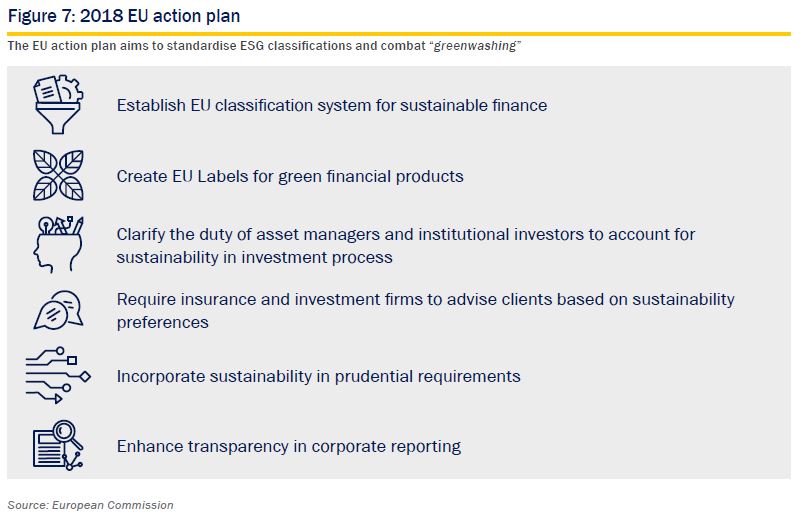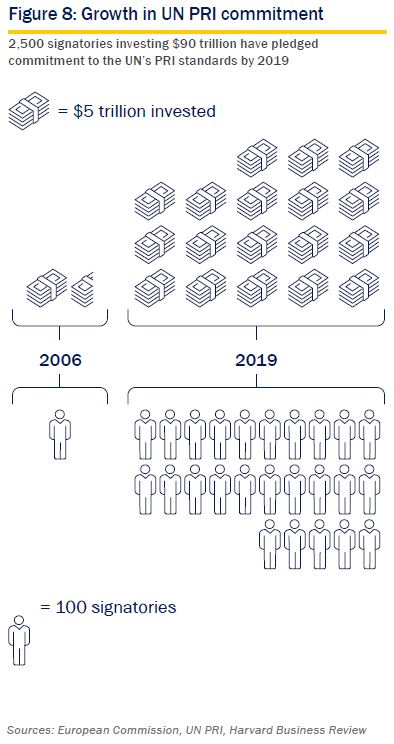Wealth Management: Investment Views – Shareholder engagement and activism

James Laing from our Global Advisory business explains how ESG is shaping shareholder activism and corporate engagement
60-second briefThe rise of responsible investing has led to an increase in disclosure obligations and shareholder engagement as businesses seek to integrate ESG standards in their day-to-day activities. Since the launch of the Global Reporting Initiative in 2000, the International Integrated Reporting Initiative and the US-based Sustainability Accounting Standard Board have helped investors gain a greater understanding of companies' adherence to industry or sector-specific ESG requirements. On the specific topic of climate change, the Task Force on Climate-related Financial Disclosures has also led to an improvement in companies' reporting on de-carbonisation activities, where they face increased shareholder activism. To find out more about these initiatives and how companies are responding to ESG shareholder engagement, we conducted the following interview. |
What challenges do companies and investors face in measuring the integration of ESG principles into everyday business?
A key challenge when advising companies on adopting ESG principles has been the lack of universally recognised classifications and standards in this field.
Defining the three pillars of ESG has proved difficult for many businesses and there is a danger that its adoption by companies can be 'window dressing' if not done properly - this in the industry is called 'greenwashing' and makes it difficult for investors to assess the true ESG impact of the companies they invest in.
Recently in Europe, the 2018 EU Action Plan on Sustainable Finance has tried to address these issues by creating a unified EU classification system to assess whether an economic activity is environmentally sustainable (Figure 7).
The Action Plan calls for:
- Standardised EU labelling for 'green' financial products;
- Benchmarks for low-carbon investing;
- Enhanced disclosure duties for asset managers;
- Transparency requirements for environmental impact reporting.
All of these initiatives should help establish ESG's integration into businesses' every day activities.
Over the last few years, what has been a key shift in the ESG advisory work you undertake?
Until around five years ago, the emphasis of our advisory work was on G -- governance. Corporate governance remains a central topic for listed businesses and we would argue a critical cornerstone around which any good environmental or social policies should be developed.
In recent years, with the rise of climate activism and the global concern around climate change, we have also seen a rise in the number of companies coming to us for advice on shareholder engagement regarding E -- environment.
This is particularly the case in the energy and oil and gas industries which have had to rethink their environmental policies in the light of increased investor activism.
Why is corporate governance a cornerstone of a solid ESG policy?
Time and time again we see companies' corporate governance as a critical factor in retaining a happy and productive work force which in turn drives value for companies and its investors. One only has to look at public ratings websites like Glassdoor to see what the impact of a poor governance ratings can have not just on employee retention and recruitment but also on a company's share price. One of the key things we look for in good governance is an alignment between a company's strategy and its remuneration policy. As an adviser to many corporates we expect to see clear, publishable guidelines which explain how executive remuneration is correlated to the fulfilment of a company's business purpose and strategy.
With increasing awareness of responsible investing and greater shareholder engagement in ESG matters what are the key initiatives we need to look out for?
Many investment managers have signed up to the UN's Principles for Responsible Investment. In 2006, investment companies with less than $7 trillion in assets under management pledged commitment to ESG standards. By 2019, this number had grown to $90 trillion (Figure 8).
On the company side, an increasing number hold annual votes on executive board pay and strategic ESG policies. This has given rise to greater shareholder engagement either through direct voting or through third-party proxy voting offered by agents like ISS or Glass Lewis. In either case, the trend is towards greater investor voting engagement. This will continue as fiduciary duties to clients increasingly extend beyond maximizing returns, to a broader consideration and active say in companies' ESG policies.
In Europe, the EU's Shareholder Rights Directive II which came into force in 2019 applies to all EU listed companies and enhances this trend, encouraging investors to disclose how they vote in shareholder AGMs. This increases transparency and investors' accountability. Ultimately this initiative will empower shareholders with more information so that they can make more informed decisions when it comes to responsible investing.
Click here to continue: Investment Views - Important information
In this Investment Views:
- Combining business with humanity: Foreword
- Responsible investments
- ESG in managing wealth
- Shareholder engagement and activism (current page)
- Important information
Download the full Combining business with humanity in PDF format (2.57 MB)

